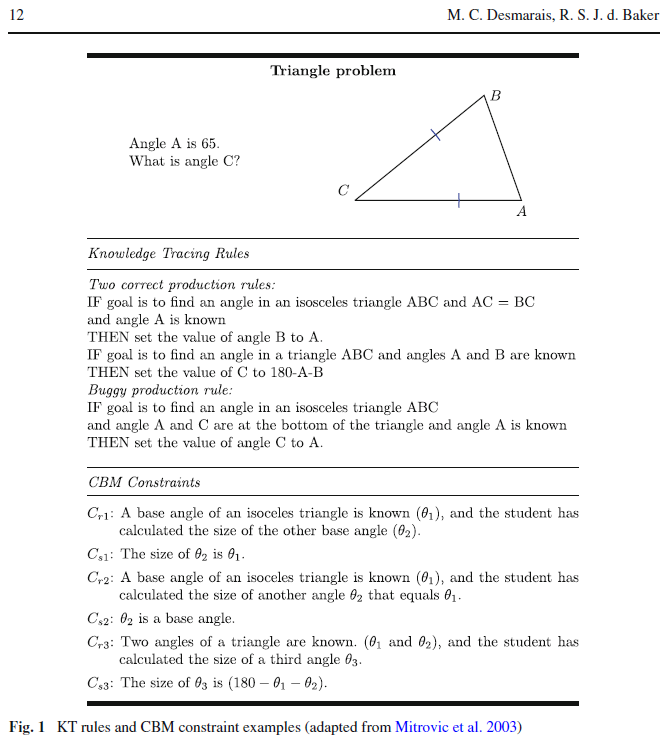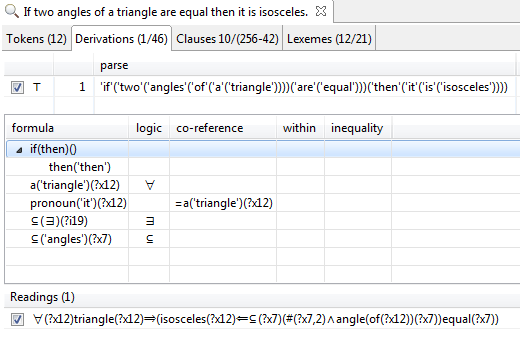There are (essentially) two types of e-learning systems:
- Cognitive tutors – which emphasize deeper problem solving skills
- Curriculum sequencing – which don’t diagnose cognitive skills but adapt engagement in various ways
For a good overview, see:
-
Desmarais, Michel C., and Ryan SJ d Baker. “A review of recent advances in learner and skill modeling in intelligent learning environments.” User Modeling and User-Adapted Interaction 22.1-2 (2012): 9-38.
The following is discussed in that article with regard to two approaches to deeper cognitive tutoring.
One of the reasons that cognitive tutors are not more pervasive is that the knowledge engineering required for each problem is significant. And that knowledge engineering involves a lot of technical skill.
We’re trying to bend the cost curve for deeper (i.e., more cognitive) tutoring by simplifying the knowledge engineering process and skill requirements. For example, here’s a sentence translated into under-specified logic:
The underspecified quantifier here is a little sophisticated, but the machine can handle it (i.e., the variable ?x7 refers to the pair of angles, not the individual angles).
We’re hoping that a few hundred (or even thousands) of these sentences with the reasoning infrastructure (akin to Watson’s) will allow deeper tutors to be developed more easily by communities of educators.


